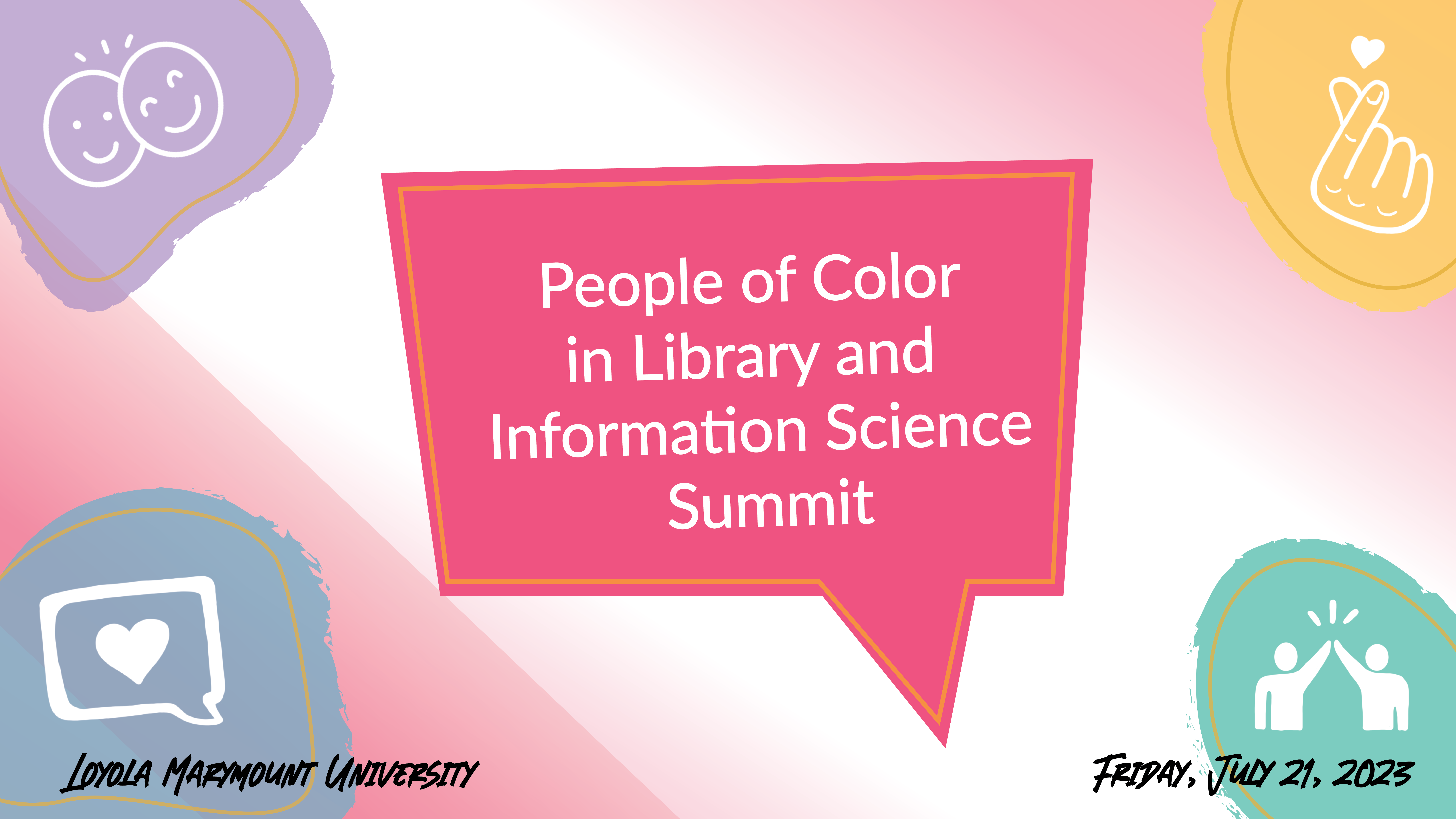Event Type
Panel
Location
McIntosh Center, U-Hall 3999
Track
Community building; Critical analysis of DEIA
Start Date
21-7-2023 2:25 PM
End Date
21-7-2023 3:25 PM
Description
The Library and Information Science field is often critiqued for its overwhelming whiteness. In spite of overt racial diversification efforts by institutions and professional organizations, white supremacy remains a constant structuring force in many LIS workplaces, even in places where the leadership and administration is staffed by people who “look like us.” These conditions are a result of classism and typifies how recognition and representation has not made the field any more welcoming to racialized non-white people. It has become abundantly clear that the process of professionalization functions as a way of incorporating MLIS students into whiteness and the lack of a strong analysis of class has resulted in a system of neo-colonial relations, where racial hierarchy is maintained in institutional organization structures (e.g., working poor Indigenous, Black, and darker skinned racialized non-white people staffing frontline and support roles while white and/or lighter-skinned “people of color” occupy full-time and administrative leadership roles). Panelists will share their lived experiences as visibly brown-skinned, racialized (non-Black) others new academic librarians to the field while exploring how neo-colonialism, classism, and respectability politics suffocate the workplace to the point where library workers become ordered to surveil and police themselves (and often each other). They will also show where a stronger analysis of how race and class and the ongoing process of settler colonialism intersect to maintain white supremacy through the establishment of neocolonial relations. This discussion will prompt attendees to develop a clearer understanding of the classism that exists within academic librarianship and, more specifically, amongst racialized non-white people within the profession. Attendees will also be able to recognize neo-colonial relations and expand their conceptualizations of intraracial violence in addition to being equipped to identify opportunities for supporting and empowering more marginalized Indigenous, Black, and other racialized non-white people to enter and succeed in the field.
Outcomes
Attendees will:
- gain a better understanding of the classism that exists within academic librarianship and, more specifically, amongst people of color within the profession
- be able to recognize neocolonial relations and disrupt whiteness/white supremacy by expanding conceptualizations of racial violence
- be better equipped to identify opportunities for supporting and empowering 'more marginalized Black, Indigenous, and other racialized non-white people to enter and succeed in the field'!
Session 3A: "Connecting with the Library (under)commons”: Building Community through Class Solidarity as Anticolonial Praxis
McIntosh Center, U-Hall 3999
The Library and Information Science field is often critiqued for its overwhelming whiteness. In spite of overt racial diversification efforts by institutions and professional organizations, white supremacy remains a constant structuring force in many LIS workplaces, even in places where the leadership and administration is staffed by people who “look like us.” These conditions are a result of classism and typifies how recognition and representation has not made the field any more welcoming to racialized non-white people. It has become abundantly clear that the process of professionalization functions as a way of incorporating MLIS students into whiteness and the lack of a strong analysis of class has resulted in a system of neo-colonial relations, where racial hierarchy is maintained in institutional organization structures (e.g., working poor Indigenous, Black, and darker skinned racialized non-white people staffing frontline and support roles while white and/or lighter-skinned “people of color” occupy full-time and administrative leadership roles). Panelists will share their lived experiences as visibly brown-skinned, racialized (non-Black) others new academic librarians to the field while exploring how neo-colonialism, classism, and respectability politics suffocate the workplace to the point where library workers become ordered to surveil and police themselves (and often each other). They will also show where a stronger analysis of how race and class and the ongoing process of settler colonialism intersect to maintain white supremacy through the establishment of neocolonial relations. This discussion will prompt attendees to develop a clearer understanding of the classism that exists within academic librarianship and, more specifically, amongst racialized non-white people within the profession. Attendees will also be able to recognize neo-colonial relations and expand their conceptualizations of intraracial violence in addition to being equipped to identify opportunities for supporting and empowering more marginalized Indigenous, Black, and other racialized non-white people to enter and succeed in the field.
Outcomes
Attendees will:
- gain a better understanding of the classism that exists within academic librarianship and, more specifically, amongst people of color within the profession
- be able to recognize neocolonial relations and disrupt whiteness/white supremacy by expanding conceptualizations of racial violence
- be better equipped to identify opportunities for supporting and empowering 'more marginalized Black, Indigenous, and other racialized non-white people to enter and succeed in the field'!




